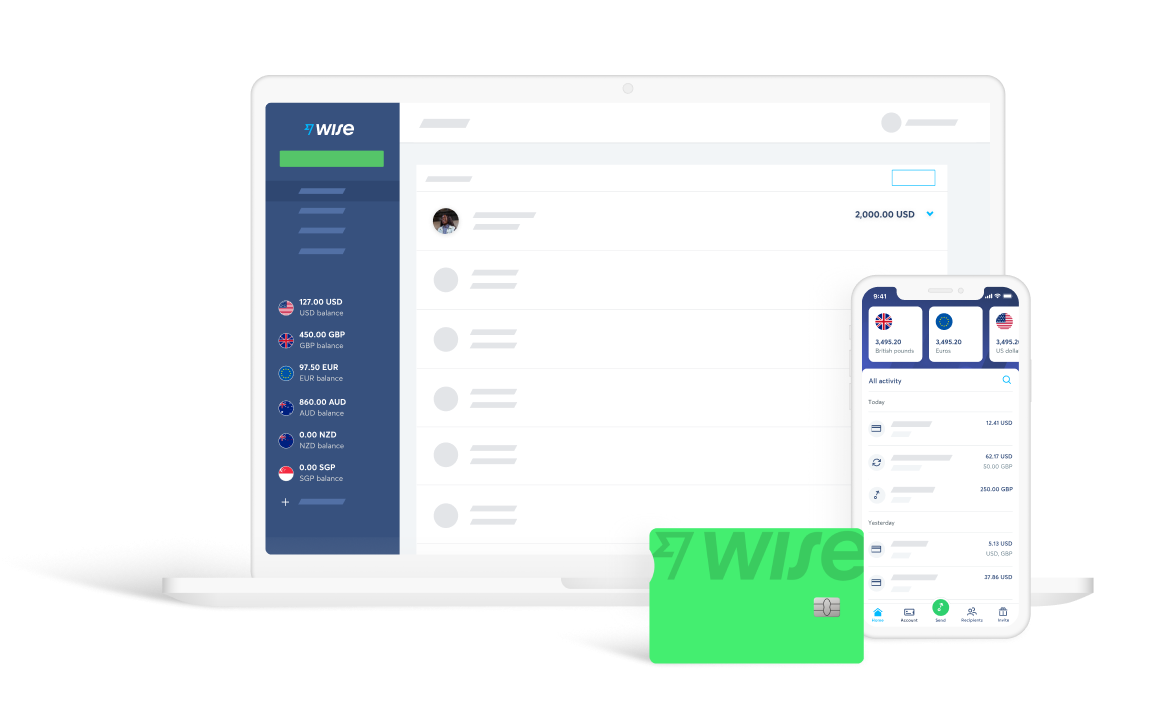In the most recent budget, which was announced in October 2021, it was stated that from January 2022, the treatment of foreign sourced income would be changing. For years, some foreign sourced income had fallen under tax exemption in Malaysia, effectively reducing the taxable income of some Malaysian citizens working abroad and sending money home.
Amid concerns from Malaysians, including many who receive foreign sourced income remittances in Malaysia, the Ministry of Finance agreed to prolong the exemption¹, allowing some of the personal tax relief for Malaysians being paid from abroad to continue for now. If you’re just catching up on the foreign sourced income budget 2022 announcements, you’re in the right place. We’ve got all you need to know covered right here.

What is foreign sourced income (FSI) in Malaysia?
Foreign sourced income typically refers to any income which originated outside of Malaysia - including employment income, and income from other sources such as dividend payments.
It’s important to note that tax legislation is complex - and the exact taxes you’re liable to pay will vary based on your personal situation, the type of income, and where in the world you’re considered to be a tax resident. Other factors such as your nationality, and where income originates from may also make a difference, while rules for a foreign company in Malaysia will be different again compared to an individual taxpayer. That’s why it’s crucial that you get personal advice from a tax professional to make sure you’re fulfilling all your tax obligations, whether they’re in Malaysia or overseas.
Foreign source income budget 2022 announcement
In the 2022 budget which was revealed in October of 2021, it was announced that FSI would be liable for tax in Malaysia if it was remitted back to the country. That would mean, for example, the income Malaysian citizens earn in Germany counts in Malaysia, and would be taxable under some circumstances. Similarly for the many Malaysians working across the border in Singapore, but maintaining residency in Malaysia, the new FSI rules would mean changes afoot.
The new FSI tax rules were due to come into effect from January 1st 2022. However, right at the end of December, the Ministry of Finance announced that some tax exemptions on FSI would remain in place until the end of 2026. This gives a 5 year transition period to allow the new tax initiative to be properly implemented - and to allow Malaysian citizens remitting FSI home to prepare themselves for changes.
Does my residency status impact where I pay tax?
Yes. Whether or not you’re considered a tax resident in Malaysia will make a difference to how much tax you pay, and what counts as taxable income.
You’ll be liable for Malaysian tax on any income derived from or accruing in Malaysia - whether you’re considered a tax resident or not. However, when it comes to foreign sourced income, the situation might be a little different. We’ll look at a couple of examples in a moment.
At the time of writing, personal income tax for Malaysian tax residents is progressive, from 1% - 30% depending on income level. The non-resident tax rate in Malaysia is a flat rate of 30% on all taxable income².
Malaysian tax residents - what income is taxable?
Assuming you’re a local tax resident you’ll pay tax on any income derived in Malaysia, but income derived from overseas may not be taxable here. Don’t forget though that you’ll generally pay tax on any income in the country it’s derived from. Here’s a brief summary of where your income is likely to be taxed - for now at least.
| Where the income originated | Where the income is received | Likely tax status (2021 - 2026) |
|---|
| Malaysia | Malaysia | Taxable |
| Overseas | Malaysia | Tax exempted in Malaysia (overseas taxes may still apply) |
| Overseas | Overseas | Tax exempted in Malaysia (overseas taxes may still apply) |
Malaysian resident getting paid in a foreign currency, from a company overseas
In this case, the chances are that you’ll not be liable for Malaysian tax on this income. However, you could be required to pay tax in the country you derive the income from, and you may well still need to file a tax return in Malaysia, even if there’s no bill to pay. Get personal advice to check your obligations.
Malaysian resident getting paid in a foreign currency, remitting money to MYR
If you’re getting paid from abroad, but regularly send the money back to your Malaysian bank account, now’s the time to prepare for changes to your taxes. This category - especially common for Malaysians working in Singapore day to day, while living in Malaysia - may well be impacted by changes to FSI taxes which are now scheduled for 2026. Watch out for updates, and get ready for changes to the way you pay your tax in future.
How do I declare foreign income in Malaysia?
If you have foreign sourced income you may need to include it on your tax return when you file it. The Malaysian tax year runs 1 January to 31 December, and your tax filing will be due by the following April 30 in most cases. You’ll be able to file your tax return easily online, to avoid handling lots of paperwork.
Receiving income abroad? Wise is up to 3x cheaper than banks
Working for an overseas employer? Freelancing for international clients? Or maybe you’re getting paid rent for a property abroad? Check out the Wise multi-currency account as a great way to get paid in foreign currencies, with lower fees, better exchange rates, and no hassle.
When you open your Wise account online you’ll get your own local account details for 10 currencies so you can get paid by local transfer from 30+ countries. That’s like having bank accounts all over the world, fast and for no extra fees. Receive in MYR, USD, SGD, EUR and more, and convert it to the currencies you need with the mid-market rate and low transparent fees.

Wise accounts can hold and handle 50+ currencies, and send payments to 80+ countries. You can also get a Wise international debit card for spending and cash withdrawals all over the world. See how much you can save with the Wise multi-currency account, today.
Sign up to Wise for free!
Sources:
- Malaysia Ministry of Finance press release
- PWC - Malaysia income tax summary
Sources checked on 29.04.2022
*Please see terms of use and product availability for your region or visit Wise fees and pricing for the most up to date pricing and fee information.
This publication is provided for general information purposes and does not constitute legal, tax or other professional advice from Wise Payments Limited or its subsidiaries and its affiliates, and it is not intended as a substitute for obtaining advice from a financial advisor or any other professional.
We make no representations, warranties or guarantees, whether expressed or implied, that the content in the publication is accurate, complete or up to date.










